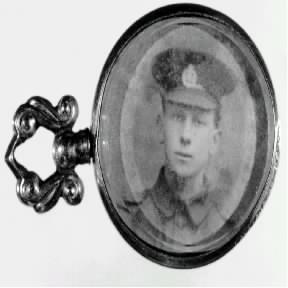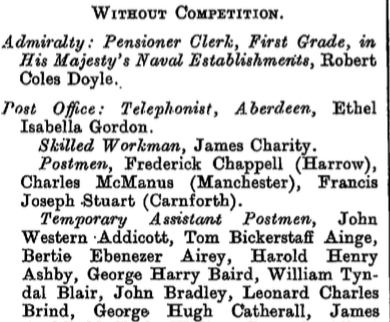Hilda Brind, who lives at the Hyde Valley House, Hyde Valley, Welwyn Garden City, reaches the grand old age of 109 on September 6.
Mrs Brind, who was born in a cottage in Banham, Norfolk, is the last surviving child of a family of nine daughters and one son.
She was born in 1896 making her one of the last Victorians and one of the few people ever to know three centuries (19th, 20th and 21st) and two millenniums.
She has one son (Alan Brind former leader of Welwyn Hatfield Council and a former Hertfordshire county councillor), five grandchildren, five great grandchildren and two great great grandchildren.
Mrs Brind's husband, Leonard Charles, a civil servant, was captured by the Germans while serving in the trenches in the First World War. He died in 1937. She never remarried.
Mrs Brind lived at Paddocks House, Panshanger, until a decade ago when she moved to Hyde Valley House.
When she was a teenager she worked as children's nanny and she continued to look after other people visiting elderly neighbours to help them with their housework. As she reached her late eighties some of the elderly she was caring for were younger than she was.
When she was in her mid nineties she recalled life at the beginning of the 20th century.
(Your mother used to make wine?) "Oh yes, in great big stone jars in the pantry. She had a lot of those big earthenware pots, because we lived near a brickfield. She used to make a lot of wine, Rhubarb wine and Parsnip wine. Parsnip wine was the best. Right at the end of the garden used to be a lot of rhubarb, what she used to call Giant Rhubarb. She cut that up, put it in a big earthenware pot and put yeast on the top and let it ferment. Then she strained off the liquid into jugs and that, big jugs. Then she'd put it in bottles, but she wouldn't cork them. She'd put the cork in but she wouldn't screw it down until a certain time. Then she'd screw it down and they were all in the pantry under the shelves."
(Did they ever explode?) "You often used to hear a cork go pop,'oh' mother said 'there's another one out, that will be coming up'. She'd go in then and take the cork out.
(When was the wine drunk?) "Anybody that came in my father used to say 'come on have a glass of wine'. And they all used to have a glass of wine. 'Come on we'll have one of your glasses of wine'. And you couldn't drink much of that, I can tell you. It used to be strong."
In those days early 20th century days village life was relatively crime free so they used to leave their back doors open. When the butcher or baker's delivery man visited he would find the back door open. Next to the door was a table on top of which was a list of items required and a glass of wine.
(Your father used to get water from a well?) "Yes we had a well. He used to fetch the water and fill the copper up for washing on Monday. They never did anything on Sunday. They wouldn't fetch a pail of water on Sunday. That was always fetched and in the pantry. He used to get two pails of water so there was water there for the weekend. Oh no, they wouldn't do anything on a Sunday. Even the work basket was put away if it was out, on the top, it was put in a cupboard. Nothing was seen on a Sunday like that."
(Your mother made clothes for you?) "She told me she used to sit up till 2 o'clock in the morning making us dresses, and things. No shops much to go and get anything. She had all us girls and she made our dresses, and oh we used to look nice, especially when we went to an anniversary at the Sunday School. And when the older girls went to London to work they used to send us hats down. They'd send a big box, with perhaps two or three hats. The hats had all little wreaths of buttercups and daisies and that and we all had a nice hat to go to the anniversaries.
"We left school at 14, and I went to live on a farm where there was only an old couple. It was very lonely. I stayed there sometimes with them. Just a little farm he used to run. He used to have another man to do lots of things but the old lady, his wife, she was invalid, crippled with rheumatism. So I used to do all the cottage for her. Clean and do everything, cooking, when I was 14, but they were nice people.
"The next farm I went to had children. I went there to look after children. A little girl and a boy. I used to stay there, sleep there as well. I used to look after the children and help her in the house."
Mrs Brind remembered a church choir going round the streets singing carols and accompanying themselves on small hand bells. She also recalled a sight which will soon be illegal.
"Mother used to say come on in and go upstairs and watch the huntsmen going across the field," she said. "And all the dogs and the huntsmen in red coats and little hats and the ladies all on side saddle with little bowler hats. I don't know how they kept on their horses. And they'd come right across the fields. They'd go across your gardens, right across and the dogs would be following them. It was exciting I used to like watching them. They didn't care what they did. If they did any damage then they paid for it."


